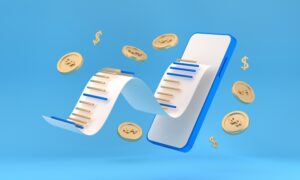Overwhelmed by your credit card bills and other high-interest loans? Debt consolidation might just be the ideal solution for you. Say goodbye to multiple debts and say hello to one affordable payment made once a month.
Read on to know more about debt consolidation and how it can help you get out of debt quicker.
What is Debt Consolidation?
Debt consolidation is a financial service that allows you to combine a number of liabilities and consumer debts into a single debt. This larger debt usually comes with more favorable payoff terms like a lower monthly installment or interest rate.
Methods of Debt Consolidation
There are two primary ways to consolidate debt. Your credit score, profile and debt-to-income ratio will determine which of these is right for you.
- Balance-transfer credit card: All your debts are transferred onto this card that can be paid off at a lower or 0% interest rate.
- Debt consolidation loan: The money from this (usually fixed-rate) loan can be used to pay off your debt, and you pay back the loan in installments over a set term.
Both these options combine your debt payments into one monthly bill. Additionally, you can also choose to opt for a home equity loan or 401(k) loan.
How Does It Work?
You decide which debts to consolidate
You can choose to consolidate credit cards, gas cards, medical bills and more. Alternatively, you can also choose to consolidate federal and private student loans.
You review your consolidation options
Compare debt consolidation programs from trustworthy financial institutions and evaluate your loan or balance transfer offers. Find the one that’s right for you and determine an amount you’re comfortable paying every month.
You start paying off your debt
If your lender doesn’t decide the order in which creditors are to be repaid, start by paying back your highest-interest debt first.
Pros
- You might save money with a low-interest consolidation loan. If the loan is secured with an asset, you could also qualify for a tax deduction
- Once in place, a debt consolidation plan will help you pay back loans quicker and in turn, stop the collection agencies from calling.
- Your life becomes easier and your financial woes are lessened with consolidated monthly bills.
Cons
- The interest rate on your debt consolidation loan may not below or even if it is, it may be subject to change.
- With credit card balance transfers, the low-interest rate usually applies for a limited time only and may increase once the promotion period is over.
- Because you’ll be making lower payments, consolidating means you’ll be in debt for longer.
- Consolidation doesn’t mean you’ll be eliminating your debt, and the way you handle money won’t change overnight. You will still have to pay attention to your spending habits after you restructure your debts.
When is debt consolidation a good idea?
- When your total debt is less than 40% of your gross income.
- When your credit score is good enough to qualify for a 0% credit card or a low-interest debt consolidation loan.
- When you have a consistent cash flow and a strategy to prevent running up debt again.
Consolidating several loan payments into one low-interest monthly payment can definitely make your life easier, but you shouldn’t do it just for convenience. Though it can help you manage your bills, it’s really improving the spending habits that actually gets you out of debt.
[offerpromo]











